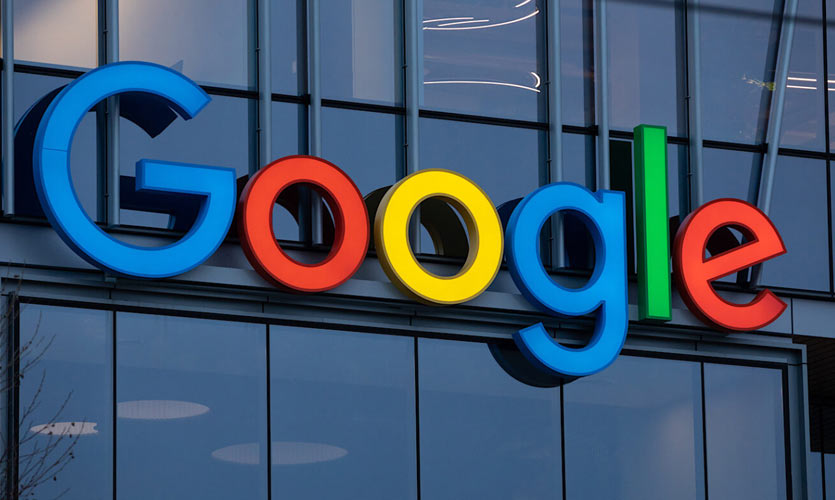Google LLC has been the subject of a formal investigation by the European Commission (EC) to determine whether it has violated the European Union’s (EU’s) rules by favouring its own online display advertising technology services in the ad tech supply chain, proving it detrimental to competitors in the market, advertisers, and online publishers. The formal investigation aims to examine whether Google is limiting third parties’ access to user data on websites and apps while maintaining ownership of such data for its use. Major tech companies, except for Microsoft, are currently embroiled in antitrust investigations in Europe. In the past two years, the EU has gone after five big tech companies. In a similar vein to its investigations into Amazon and Facebook, the EC will be investigating Google to see if it engaged in anti-competitive practices in the ad tech sector.
Wion says the case opens a new front for the EC against the search engine giant, which has already been fined eight billion euros ($9 billion) for anti-competitive behaviour. Display advertising is a major source of funding for many publishers who provide free online content to consumers. This lawsuit focuses on Google’s technologies that serve as intermediaries or brokers between advertisers and publishers online, which are largely unnoticed but highly dominant. Many of the EU’s web pages and apps display advertising markets that are powered by Google technologies, including Google AdX, Doubleclick, and AdSense, with an estimated value of about 20 billion euros in 2019. In order to display ads on websites or mobile apps, Google offers these advertising technologies that serve as middlemen between advertisers and publishers. As the investigation reveals, Google’s profit-making machine relies heavily on advertising, which is responsible for more than 80 percent of its revenue.
“Online advertising services are at the heart of how Google and publishers monetise their online services. Google collects data to be used for targeted advertising purposes, it sells advertising space and also acts as an online advertising intermediary,” Margrethe Vestager, Executive Vice-President, in charge of competition policy, told the European Sting. “So Google is present at almost all levels of the supply chain for online display advertising. We are concerned that Google has made it harder for rival online advertising services to compete in the so-called ad tech stack,” added Vestager. Vestager stressed the importance of fair competition both for advertisers to reach consumers on publishers’ sites, as well as for publishers to generate revenue by selling their space to advertisers. She maintained that a review of Google’s policies on user tracking will also be conducted in order to make sure the company adheres to fair competition laws.
Read more: Google Rolls Out News Platform In India, Ropes In 30 Publishers
During the investigation, the Commission will examine Google’s display advertising services, which it offers to both advertisers and publishers. The EC will investigate in particular the requirement to purchase online display advertisements on YouTube using Google Display & Video 360 (‘DV360’) and/or Google Ads.
- It will probe the obligation to use Google Ad Manager for online display advertisements on YouTube, as well as any restrictions Google may impose on the ability to compete for services to serve online display advertisements on YouTube.
- The apparent preference for Google’s ad exchange “AdX” by DV360 and/or Google Ads; and the potential preference for DV360 and/or Google Ads by AdX. The restriction imposed by Google on third parties prevents them from accessing data about the identity of users or their browsing habits, which is available to Google’s intermediary advertising services, including the Doubleclick ID.
- Google announced plans to prohibit the placement of third party ‘cookies’ on Chrome and replace them with the “Privacy Sandbox” set of tools, including the effects on online display advertising and online display advertising intermediation markets.
- Additionally, it has planned to stop making the advertising identifier available to third parties on Android smart mobile devices when a user opts out of personalised advertising, and the effects on online display advertising and online display advertising intermediation markets.
Accordingly, the practices under investigation may be in violation of EU rules on anti-competitive agreements between companies (Article 101 of the Treaty on the Functioning of the European Union (TFEU)) and/or dominant position abuse (Article 102 TFEU).
When it comes to protecting user privacy, the Commission will follow the General Data Protection Regulation (GDPR). In order to ensure that the display advertising market operates on a level playing field where all participants respect user privacy in the same manner, competition law and data protection laws must be integrated. Taking a detailed look into this matter will be the EC’s top priority.
According to a Google spokesperson, as reported by Toolbox, Google “will continue to engage constructively with the European Commission to answer their questions and demonstrate the benefits of our products to European businesses and consumers.”
Google is expected to examine its online advertising platform in the wake of an investigation launched in 2019. A number of new laws are being drafted by the EU in tandem with the investigation, giving tech giants more control over their operations and giving them the right to hire “gatekeepers”. If the investigation is successful, Google’s market behaviour could be expected to change within no time.










